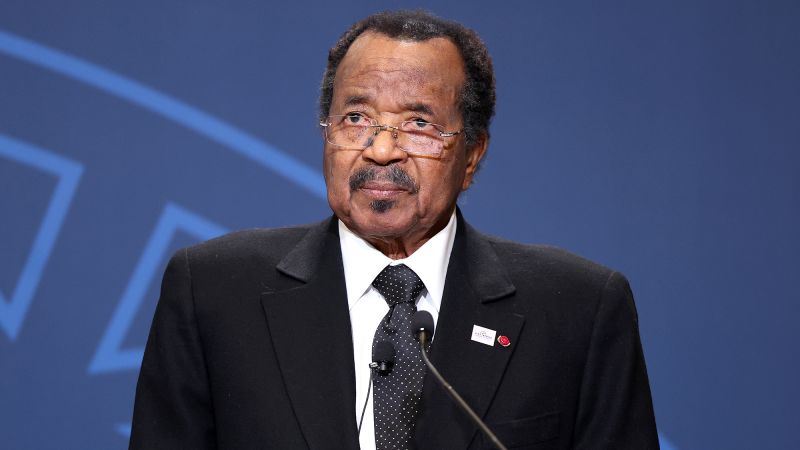CNN
—
Cameroon’s 92-year-old President Paul Biya, who has held an iron grip on the Central African nation for nearly 43 years has launched a reelection bid that could keep him in power until almost his 100th birthday.
“Much remains to be done,” said Biya, who is in the twilight of his seventh term in office. “The best is yet to come,” added the Cameroonian leader in a statement on Sunday.
Biya is seeking a fresh seven-year term in a presidential election scheduled for October, despite reports that his health has deteriorated. He said his decision to extend his grip on power rested “on urgent appeals coming from the 10 regions of our country and from the diaspora.”
His announcement comes months after his office pushed back on speculation he was unwell or had died following a lengthy absence from the public eye.
Discussions about his health were later banned in the media, with the Cameroon interior ministry declaring it a national security matter.
For years, rumors about Biya’s health and whereabouts have been major talking points in Cameroon, where he has rarely been seen in public. He has maintained a strong grip on the nation, however, winning multiple re-election victories – some by a landslide.
Biya came to power in 1982 and has remained in office for more than four decades, becoming one of the globe’s longest-serving heads of state, excluding monarchs. He is only the second president to lead Cameroon since it achieved independence from France and Britain in the early 1960s.
Questions swirled around the prospects of Biya seeking an eighth term in office with many local leaders urging him to seek a new mandate. However, some of his allies have quit his government and launched their presidential bids.
Defeating Biya at the polls may not come easily for his opponents, according to political analyst Collins Molua Ikome, who is based in Germany.
Ikome told CNN that Cameroon’s opposition, which comprises more than 300 political parties, is too fragmented to dislodge Biya’s ruling Cameroon People’s Democratic Movement (CPDM) party at the October polls. Only a coalition, he said, could pose a threat to the president.
“They (the opposition) don’t stand a chance as individual candidates. If they form a transitional coalition then maybe they might,” he said.
In March last year, plans by two opposition parties to create a coalition were dubbed illegal by the country’s interior ministry, a move described by Human Rights Watch as “part of a government crackdown on opposition and dissent.”
Biya’s long rule has been marred by widespread accusations of human rights violations that included “extrajudicial executions, arbitrary arrests, unlawful detentions, torture… unfair trials, and persecution and imprisonment of people for their real or perceived sexual orientation and gender identity,” according to rights group Amnesty International.

